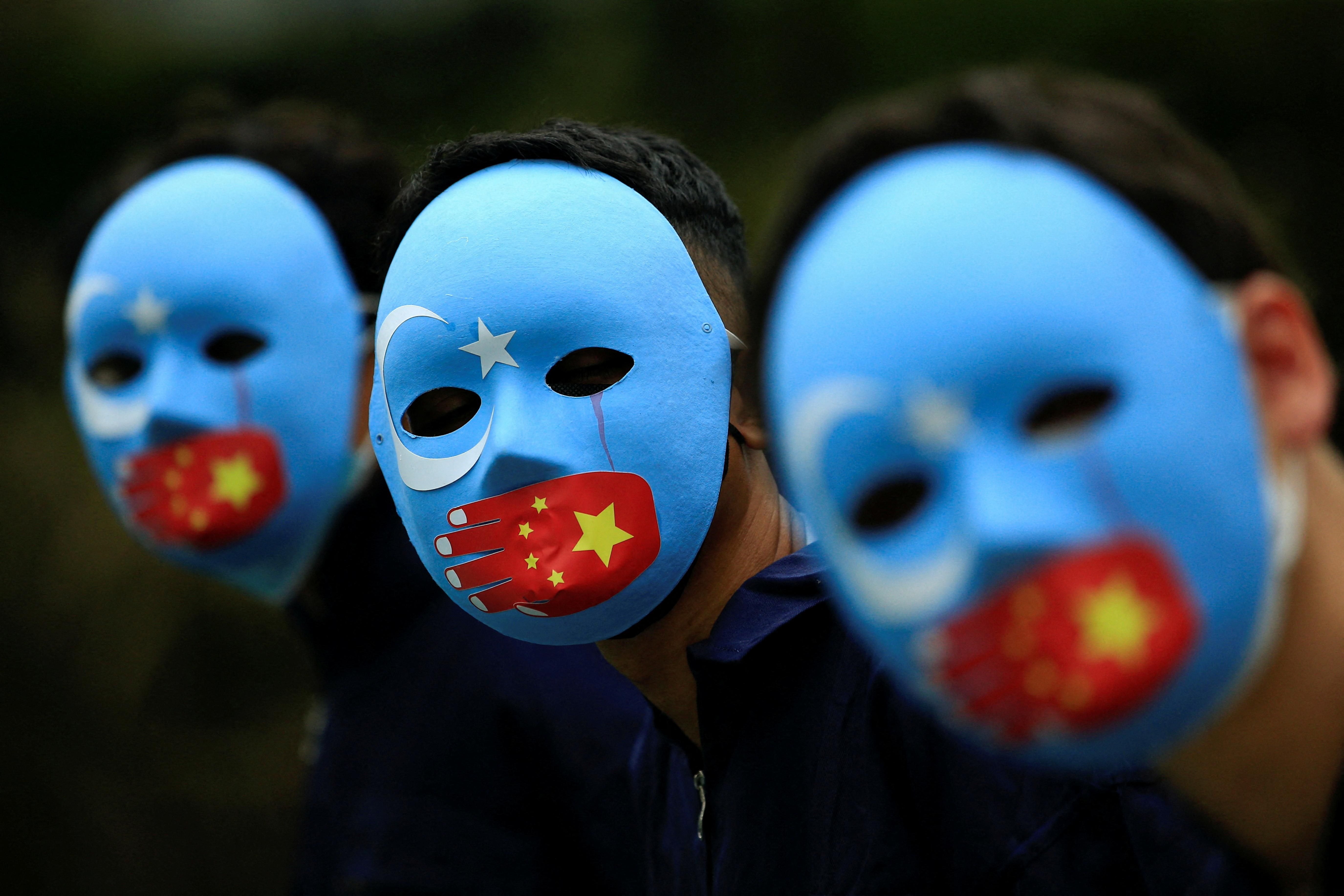What We’re Watching: Xinjiang at the Beijing Olympics, Boris in deep(er) trouble, Indonesia’s new capital
Selling Xinjiang. Xi Jinping — a man well known for both his grand vision of China’s future, and for his willingness to get large numbers of people to do things they might not otherwise do — said in 2018 that he wanted 300 million Chinese people to participate in winter sports. The Chinese government announced this week that this goal has been met in honor of the Beijing Winter Olympic Games, which open in China’s capital on February 4. Multinational companies are consistently impressed by the commercial opportunities created when 300 million people decide to try new things. But it’s an inconvenient truth that most of China’s most abundant snow and best ski slopes are found in the northwestern region of Xinjiang, a place where Western governments and human rights organizations have accused Beijing of imprisoning more than one million minority Uyghurs in re-education camps. In these prisons, critics say inmates have experienced “torture, and inhumane and degrading treatment.” As China’s government opens new profit opportunities in Xinjiang, multinational corporations will face pressure from multiple directions not to invest there.
Boris at the battlements. “In the name of God, go,” Conservative lawmaker David Davis said on Tuesday during an especially heated session of the UK parliament. These words, once directed at former PM Neville Chamberlain over his inept handling of Adolph Hitler, were this week aimed at the current prime minister, Boris Johnson. Now comes news that a dozen other of Johnson’s fellow Tories have sent letters calling for a vote of confidence in him as party leader. That’s a sign we might see the 54 letters needed to trigger that vote in coming weeks. Johnson’s approval numbers speak for themselves: the latest polls show that just 22 percent of British adults say he’s doing “well” as prime minister, while 73 percent say Johnson is performing “badly.” As we’ve written, his problem is not only, or even mainly, that he attends parties he shouldn’t. It’s that controversies over pandemic policies, the (rising) cost of living in the UK, and lingering Brexit bitterness have given rivals within his party who have never much liked him plentiful ammunition to complete his political execution.
Goodbye Jakarta, hello Nusantara. Indonesia passed a new law on Tuesday authorizing the government to relocate the capital from Jakarta to a new city to be built on Borneo island in about a decade. It will be called Nusantara, the old Javanese word for "archipelago.” President Joko Widodo wants to ditch Jakarta because the current capital is too congested, polluted, and flood-prone. But building an entire capital city from scratch in the middle of the jungle — as Brazil and Myanmar have done in past decades — will be no easy feat. First, the government must raise most of the $32 billion budget from private investors. Second, environmental groups oppose destroying precious rainforests that are home to many endangered species. Third, the president’s successor could shelve the entire project. Widodo, who is term-limited, aims for Nusantara to become a low-carbon business & tech hub that will promote sustainable economic growth beyond the main island of Java, where most Indonesians live. Whether that will take the expected 10 years, much longer, or happens at all will depend on the country’s next leader.